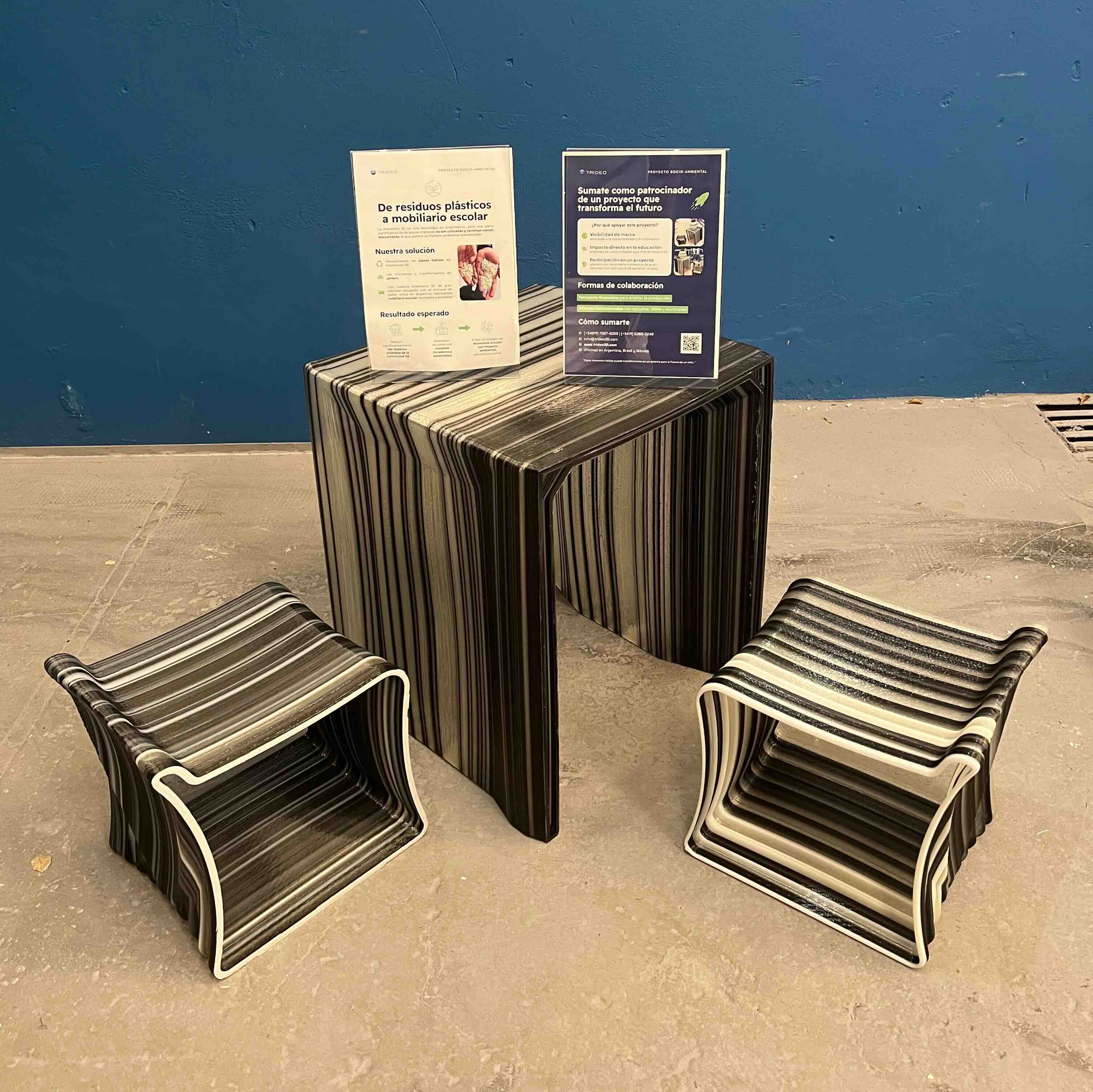
-
September 19, 2025
The 3D Printing Congress held at the Metropolitan Design Center (CMD) in Buenos Aires consolidated its position as one of the most important events in the sector in Argentina. Bringing together manufacturers, designers, engineers and entrepreneurs, the congress became an ideal space to present the latest trends in additive manufacturing and discuss the future of this technology in the industry.
In this framework, Trideo had an outstanding participation showing live its equipment and sharing its vision on how 3D printing can contribute to industrial innovation and at the same time to environmental sustainability. Trideo participates for the eighth time in the 3D Printing Congress in Argentina, consolidating its leadership and presence in the national market since 2014.
Throughout the congress, our booth was a point of reference for those seeking to learn more about large format industrial 3D printing. We brought to the event our most representative equipment, which printed live parts of different sizes and materials, demonstrating the quality, precision and robustness that characterizes our solutions.
The main attraction was undoubtedly our Big Ta 3D printer with a working volume of 1 cubic meter (1000 x 1000 x 1000 mm), specially equipped with a pellet extruder. This configuration allowed us to show in time some prints with failed 3D printing recycled material to transform it into new useful parts.
One of the great problems of the industry is the accumulation of failed parts that, in most cases, end up in the trash. Our proposal seeks to change this reality:
In this way, instead of discarding waste, we are able to give it a second useful life, reducing environmental impact and lowering production costs.

With this recycling technology applied to large format 3D printing, we present a concrete project: the manufacture of accessible school furniture. Thanks to the Big T's ability to print large structures in a short time, we can produce sturdy chairs, benches and tables using recycled PLA from failed prints as raw material.
This approach opens the door to an innovative and sustainable solution for school equipment in resource-constrained communities, bringing together technology, circular economy and positive social impact.
Our participation in the 3D Printing Congress at the CMD in Buenos Aires was more than a technological exhibition: it was an opportunity to reinforce our commitment to sustainable innovation. 3D printing not only has the power to transform industrial processes, it also has the power to build a more responsible and equitable future.
At Trideo we firmly believe that the path to the future of manufacturing must combine production efficiency, environmental responsibility and social benefits. And this kind of initiatives are the reflection of how 3D printing can be a tool to generate real and lasting changes.